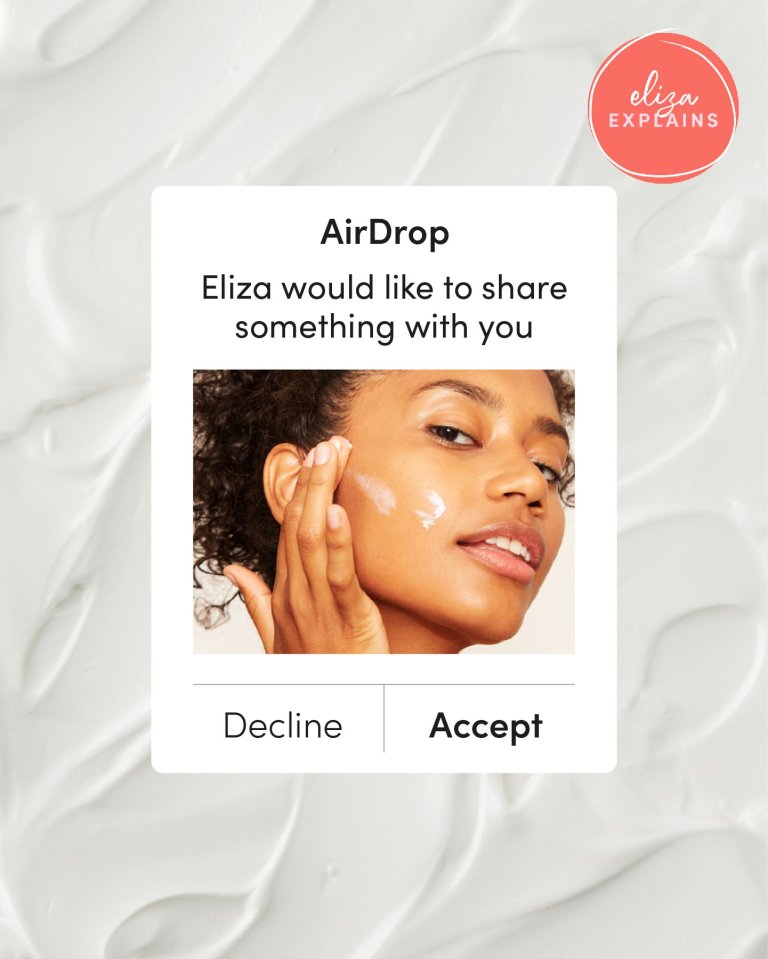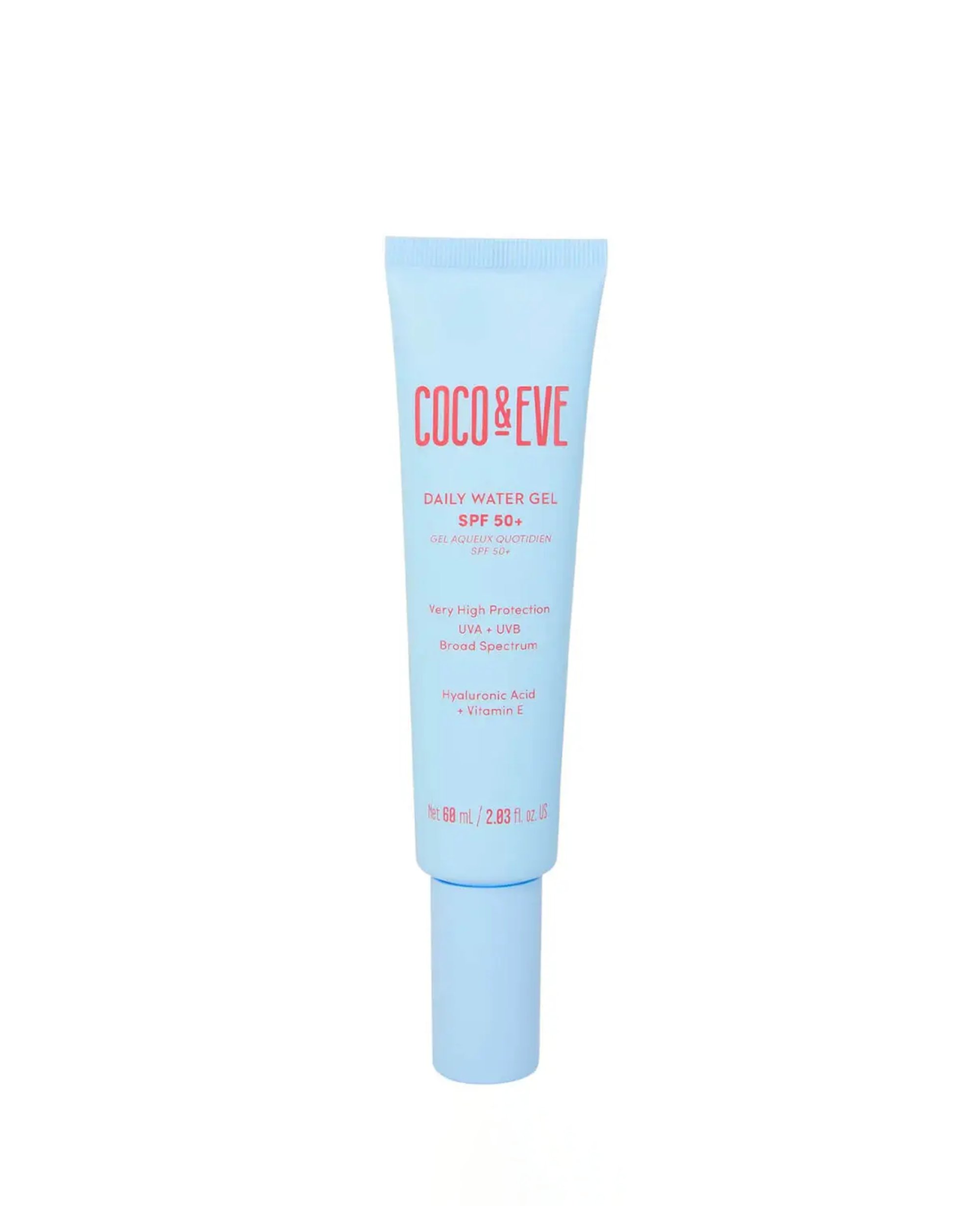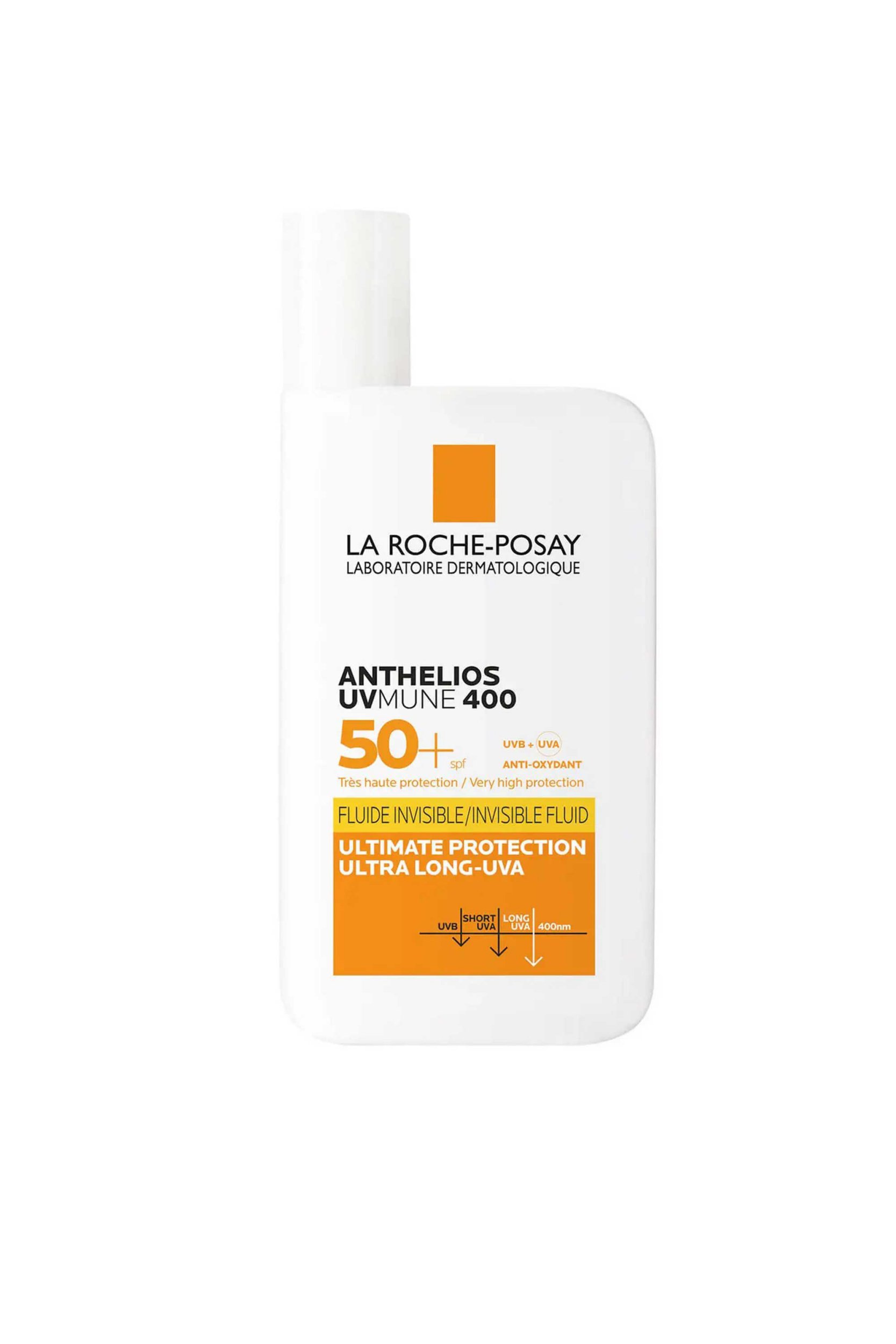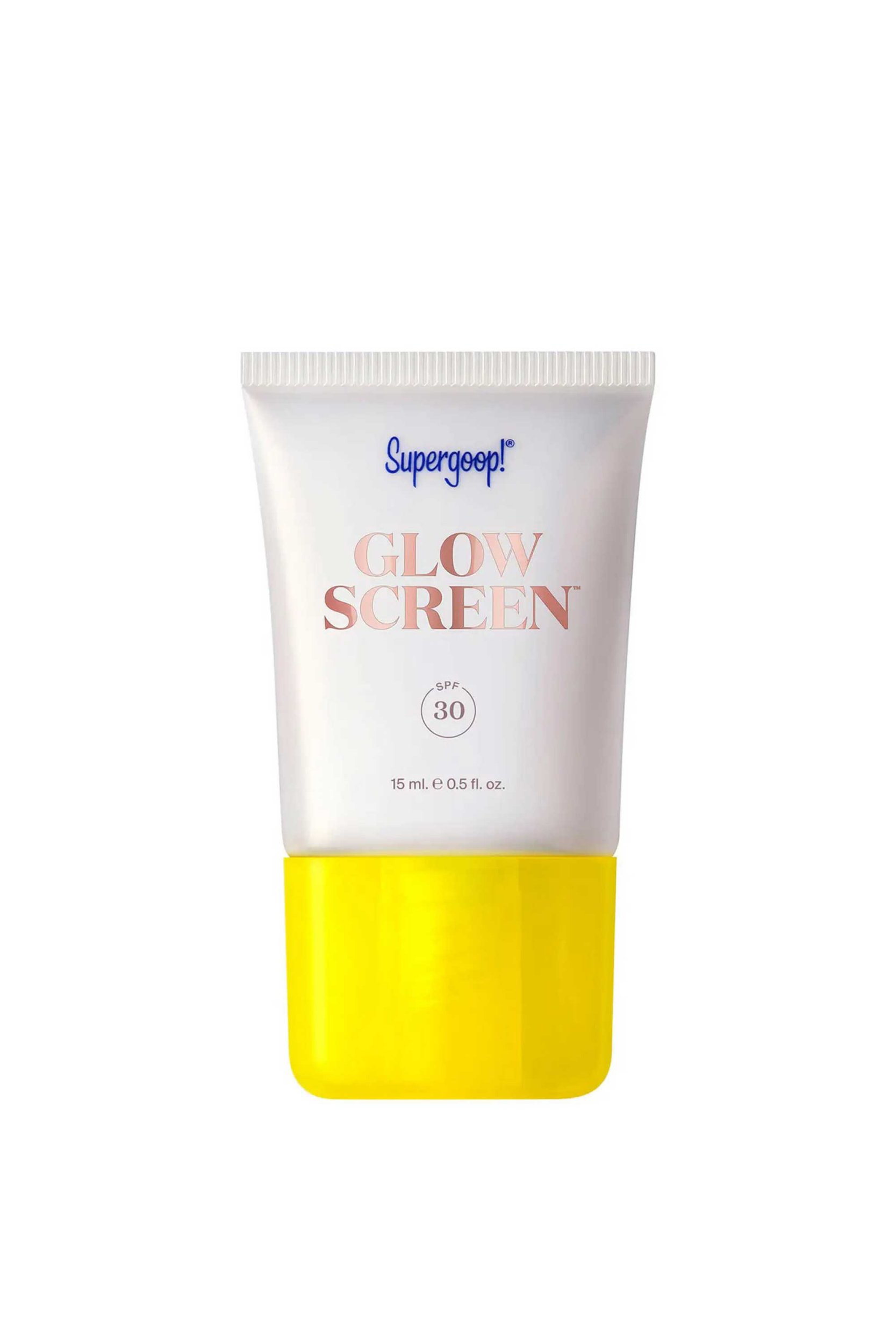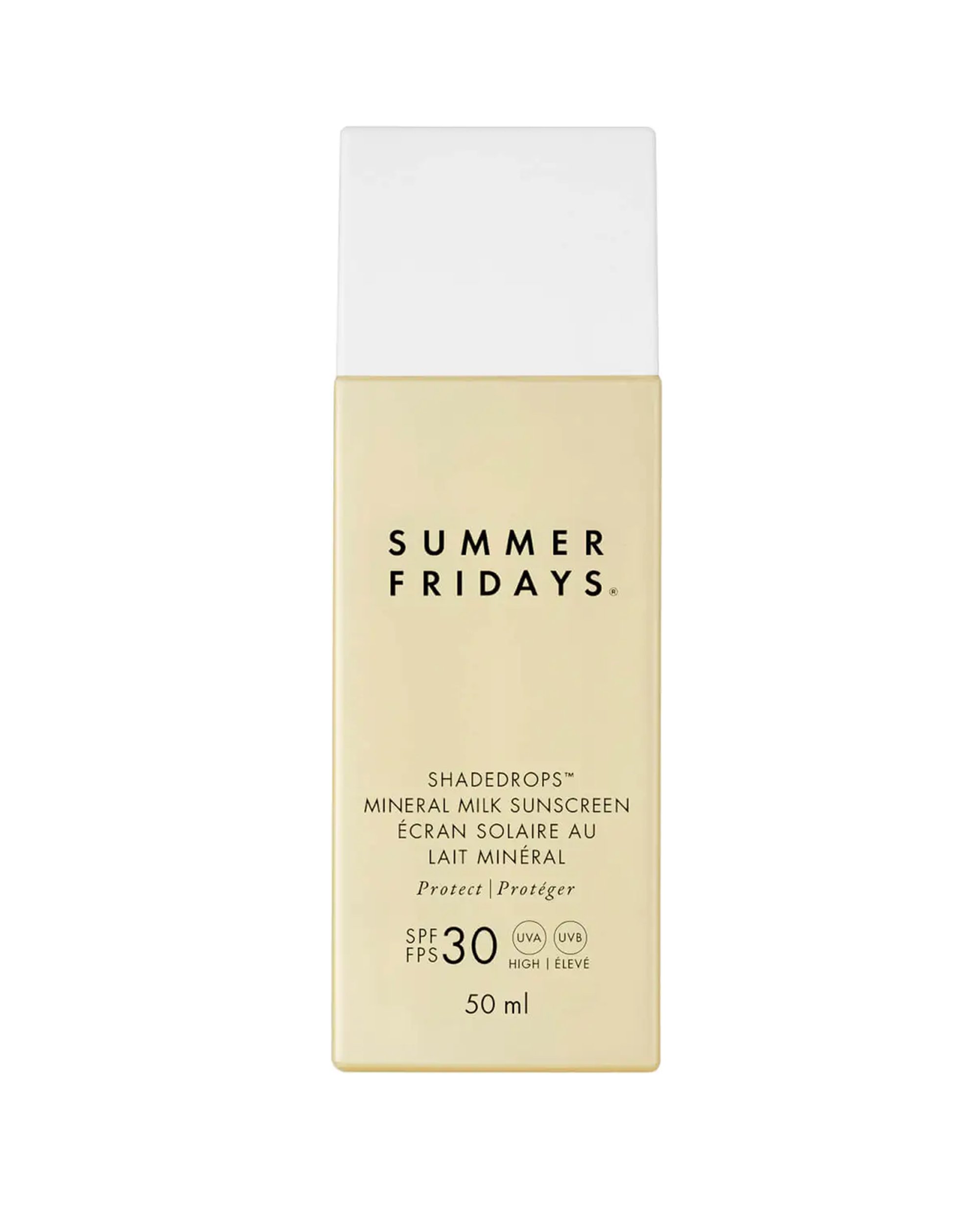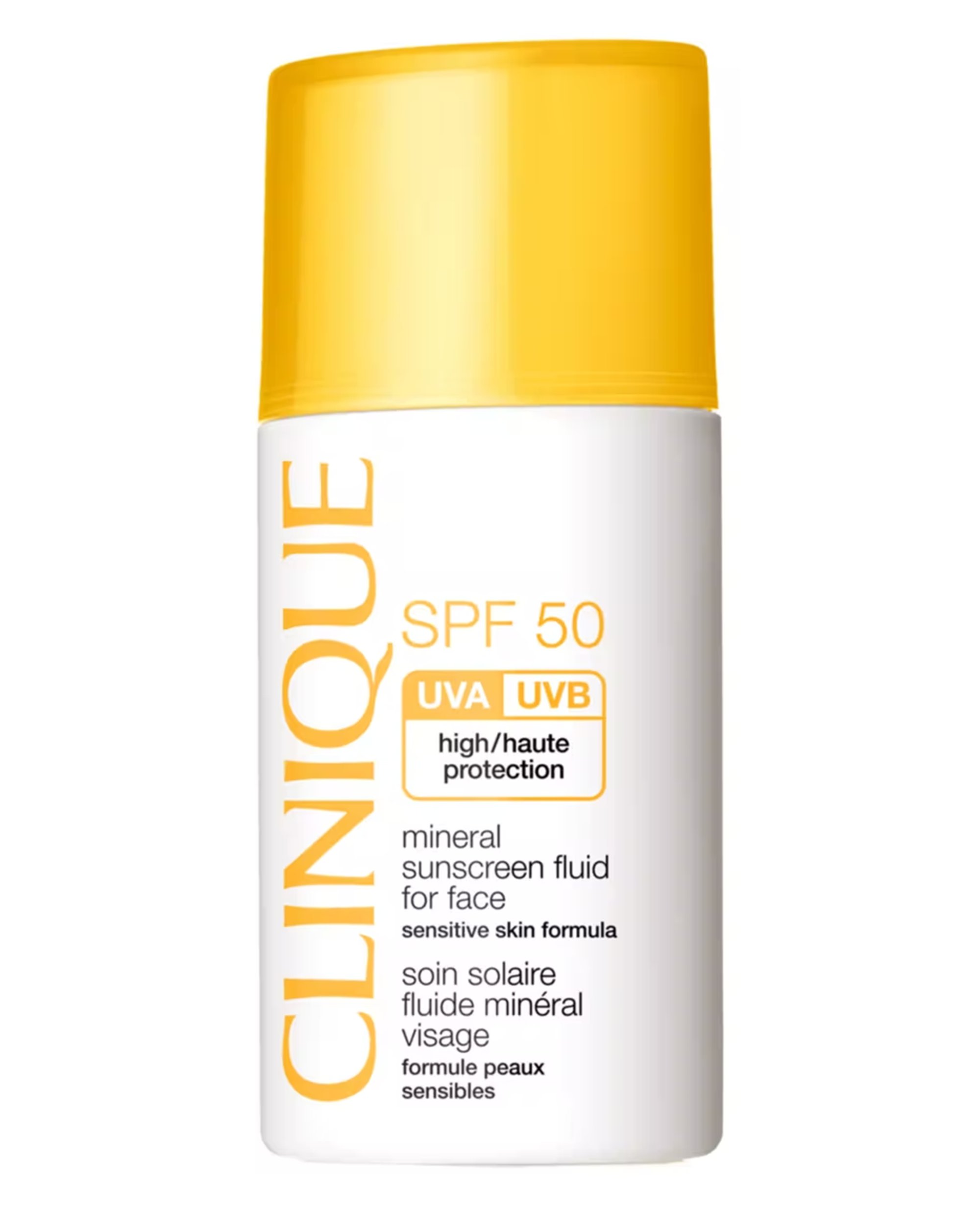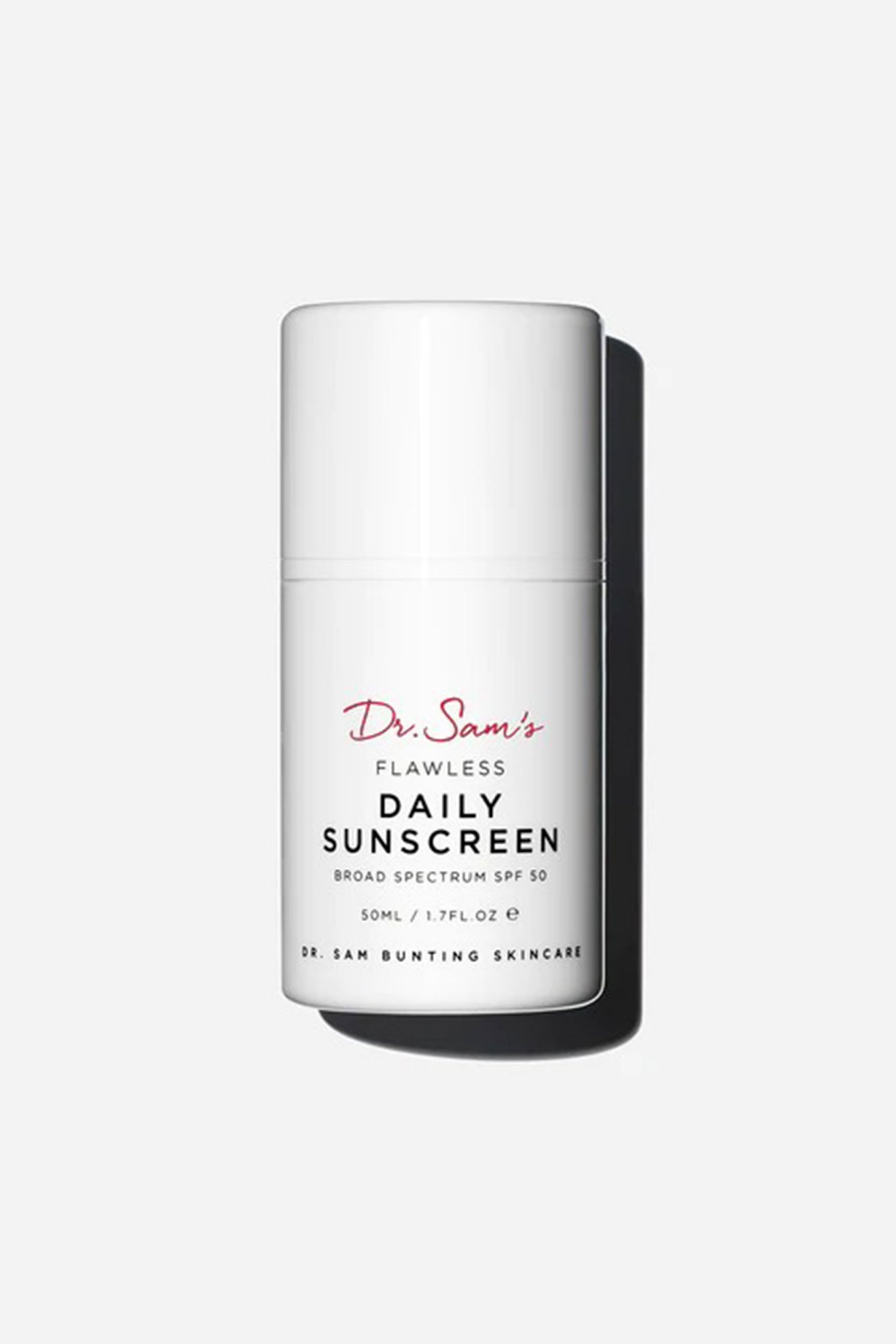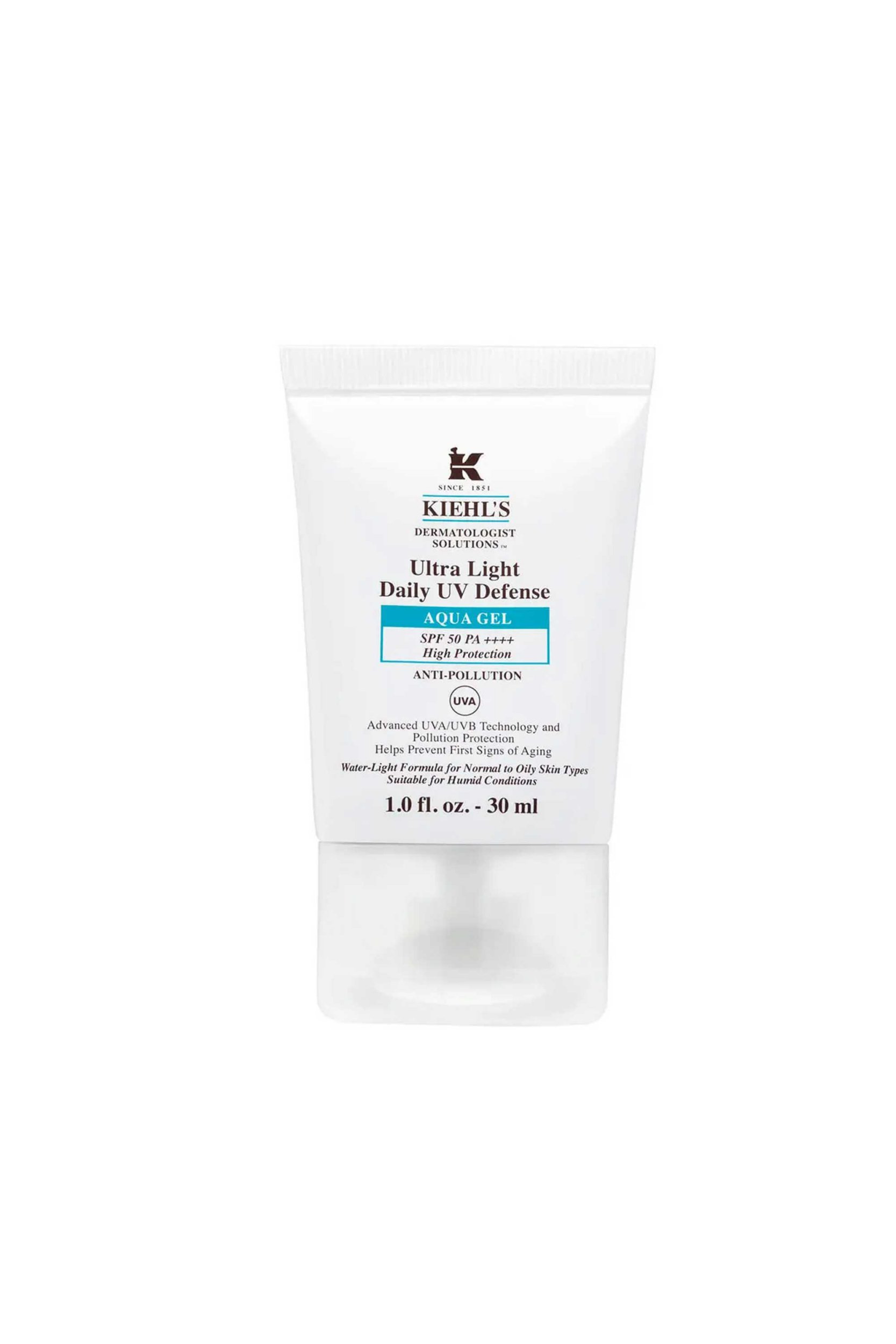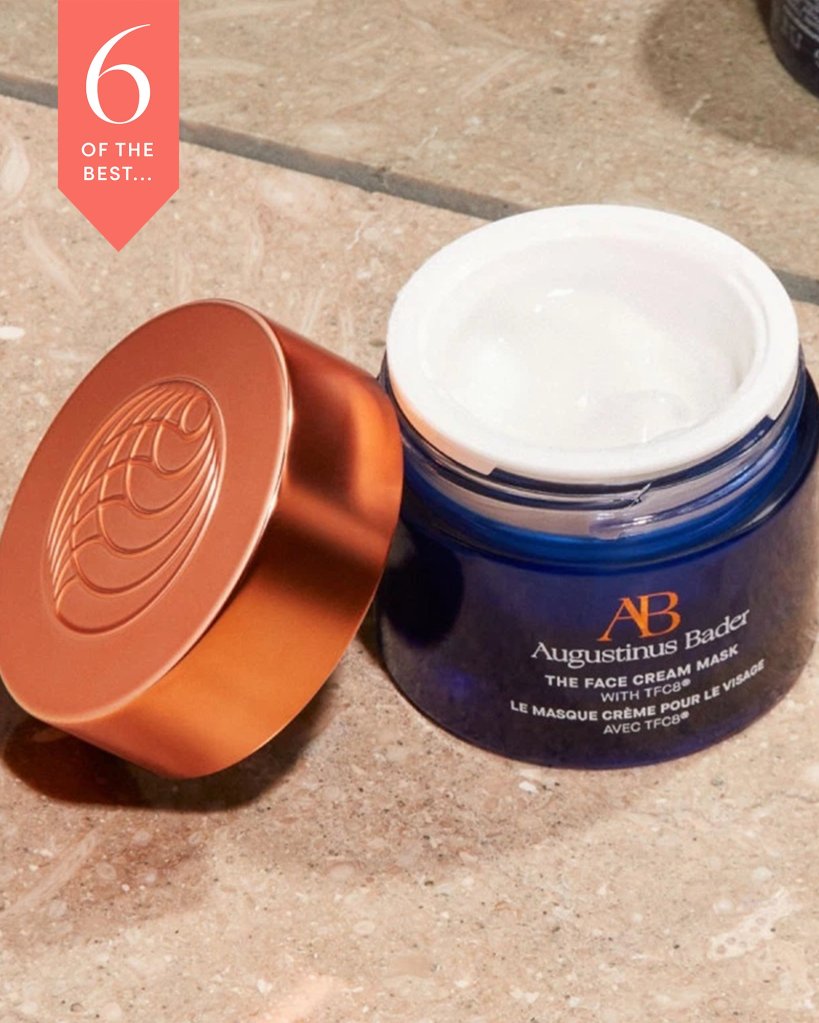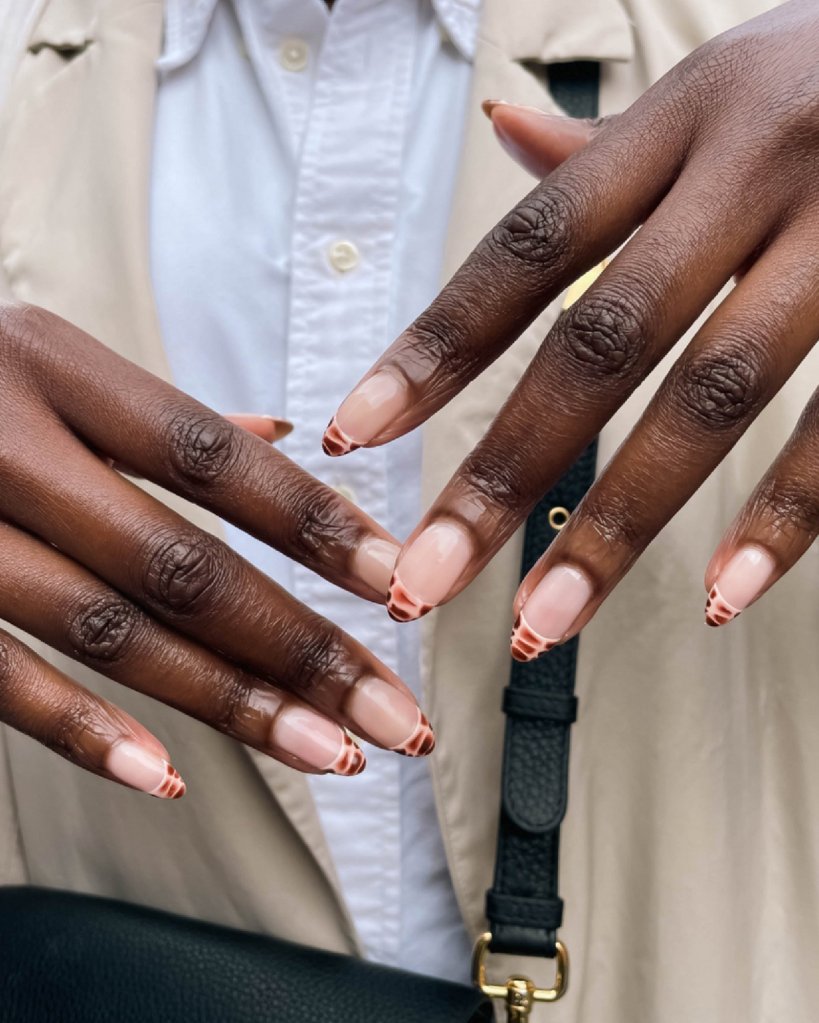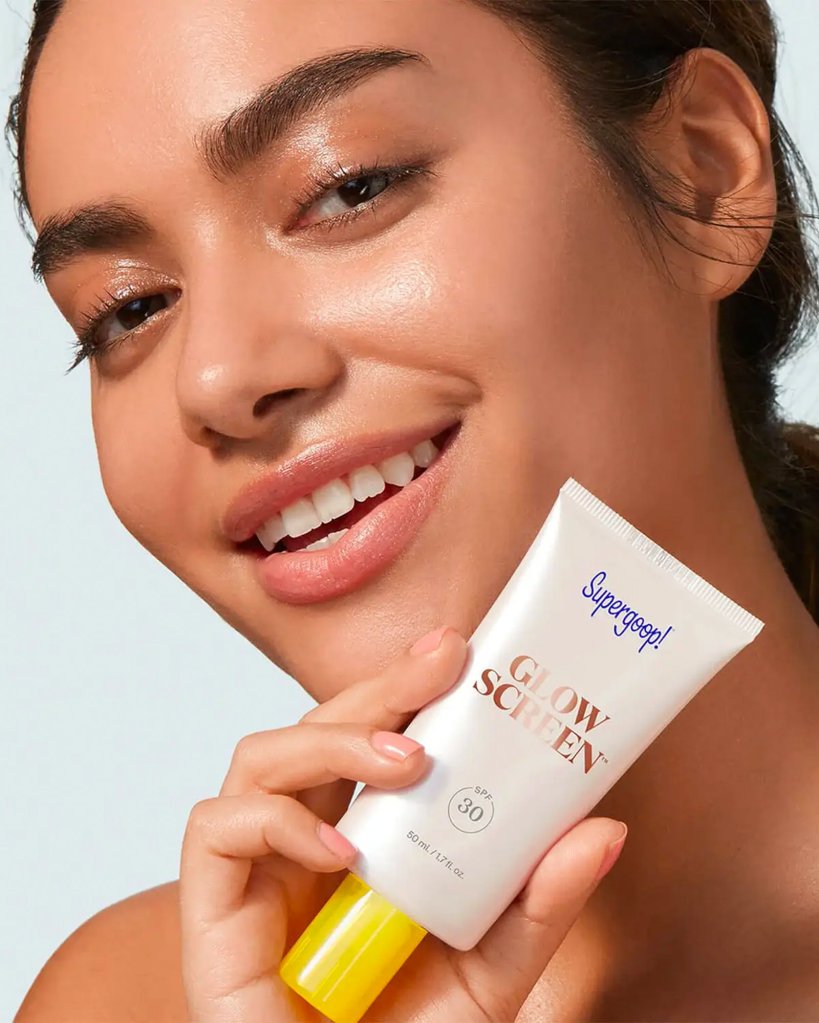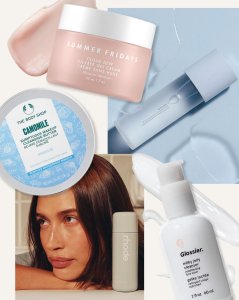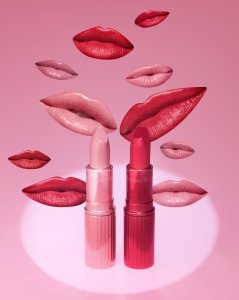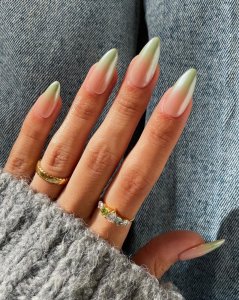Demystifying ingredients, clarifying how to apply products and revealing everything you’ve always wanted to know about skin types; Eliza Explains will help you become a beauty pro.
If I had to pick just one skincare product to use for the rest of my life, it would be sunscreen. Boring? Yes. Essential? Also yes. Sure, serums, masks and the rest are a delight to use and boast many skin-boosting benefits, but none of them are as impressive as sunscreen when it comes to function.
What does sunscreen do?
Good sunscreen literally blocks out the sun. It helps to protect your skin from both the harmful UVA and UVB rays that can cause everything from premature aging to loss of elasticity and more serious concerns.
“UVB is associated with risk of skin cancer, while UVA contributes to pigmentation, redness and wrinkles,” says dermatologist Dr Zainab Laftah. It’s powerful stuff, and something that every dermatologist on the planet will tell you is the first line of defence against the damaging effects of the sun’s rays.
Read more about SPF and skincare…
- SPF guide: everything you need to know about protecting your skin from the sun
- The 8 best SPF mists for topping up over makeup
- The SPFs that work for every skin tone
- The sun care solutions to keep on you at all times, from SPF hand cream to lip balm
What do you need to look for when choosing a sunscreen?
As great as the world of sun protection is, there’s a lot of information to sift through before you find ‘the one’. Sunscreen that you’re happy to wear every single day (yup, that’s the derm’s recommendation) has got to tick a lot of boxes. I don’t want my sun protection to be greasy, leave a white cast or ruin the finish of my makeup – it’s a tough gig, being a sunscreen.
Before you even start searching for a formula, you need to figure out which type of sunscreen is right for you. It’ll fall into one of two camps: either a mineral or a chemical sunscreen. But what does that actually mean? Which is better? And which is going to be your forever partner in sun protection? Here’s everything you need to know…
What is the main difference between mineral and chemical sunscreen?
The key difference between these two types of sunscreen is how they work. Mineral sunscreens work physically, by reflecting the sun’s rays, while chemical sunscreens work, well, chemically – absorbing the rays and turning them into harmless heat. The most important thing to know though, is that they both do their job of helping to protect your skin from UVA and UVB rays.
When it comes to choosing between a mineral and a chemical sunscreen, really it’s all down to personal preference. Mineral sunscreens tend to be slightly heavier in texture but they are also less likely to irritate skin, while chemical sunscreens are lighter and easier to wear but have been linked to skin irritation.
Chemical sunscreen: the details
“Chemical sunscreens, also known as organic sunscreens, contain chemical filters such as avobenzone, homosalate, octisalate, octocrylene, octinoxate or oxybenzone, which absorb sun rays,” says Dr Ejikeme. Sounds science-y. And it is. Rather than reflecting the sun’s rays (like a mineral sunscreen), the active ingredients in chemical sunscreen absorb the sun’s rays, convert them into heat and the heat is then released through the skin. Clever.
6 of the best: chemical sunscreens
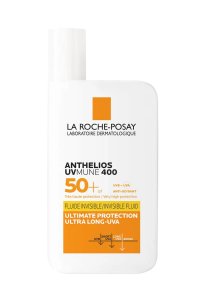
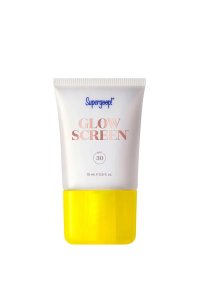
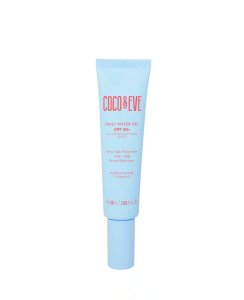
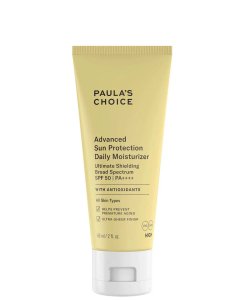
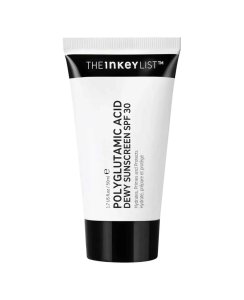
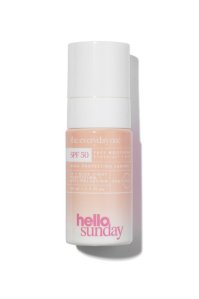
*Eliza may earn commission on sales from these product links
What are the benefits of using chemical sunscreen?
The texture of chemical sunscreen is usually more sheer than mineral versions, which is why they have become popular in recent years. As we become more sun savvy, sunscreen that melts into skin and can be easily worn under makeup is a natural everyday choice. However, because of the active ingredients in them, chemical sunscreens have faced some criticism for their potential to irritate sensitive skin.
Is chemical SPF environmentally friendly?
There is ongoing research suggesting that oxybenzone-containing sunscreens could be toxic to coral reefs and marine wildlife. However, there are also bodies of studies saying that the quantities entering the ocean are too small to do any damage, so the jury is still out on that one.
The pros and cons of chemical sunscreen:
Pros
– Lightweight, sheer texture = ideal for everyday use
– Longer-lasting effects than mineral sunscreen can provide
Cons
– Can cause irritation for sensitive skin types
– Takes around 15 minutes to absorb into skin and start working
– Potentially could have a harmful effect on marine and ocean life
The best chemical sunscreens to try now:
Coco & Eve Daily Watergel SPF 50+, £20.15
This hydrating, gel-like lotion skinks into skin with ease and leaves a soft glow as an added bonus. It contains hyaluronic acid to hydrate, aloe vera to soothe and the antioxidant vitamin E for added protection. The formula is also dermatologist tested, blocks out both UVA and UVB rays and is safe for sensitive skin.
La Roche-Posay Anthelios UVMune 400 Invisible Fluid Tinted SPF50+, £19.90
New research has shown that UVA rays may be even more harmful than we thought. “Long UVA rays have the ability to penetrate deep into the dermis, where they not only damage collagen but are also instrumental in creating pigmentation, causing the skin to age,” says Dr Laftah. In response to this, skincare brand La Roche-Posay has patented something called Mexoryl 400, a chemical filter that protects against these harmful long UV rays, giving you more protection against pigmentation and DNA damage.
Supergoop! Glowscreen SPF30, £17
This is my go-to sunscreen for everyday use. It acts as a brilliant dewy primer under makeup as well as offering decent sun protection to boot. It has a beautiful lightweight texture, meaning it feels practically undetectable, too.
Mineral sunscreen: the details
Mineral sunscreen, sometimes called physical or inorganic sunscreen, is essentially a traditional sunblock. “Mineral sunscreens contain active ingredients, such as zinc oxide and titanium oxide,” says dermatologist Dr Ifeoma Ejikeme. These ingredients sit on top of the skin and create a physical barrier to Essentially the active ingredients act like mirrors, which both UVA and UVB rays bounce off, so that they aren’t absorbed into your skin. Clever.
6 of the best: mineral sunscreens
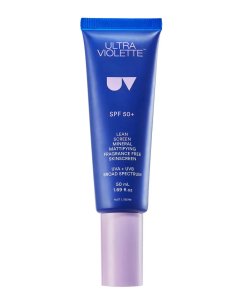
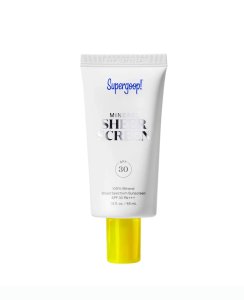
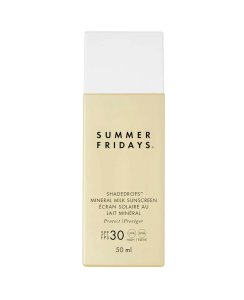
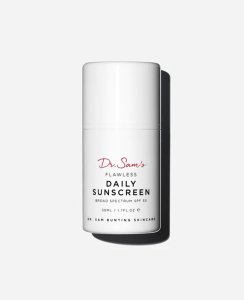
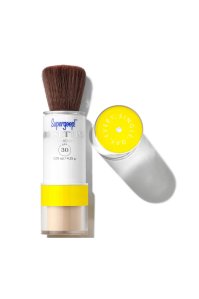
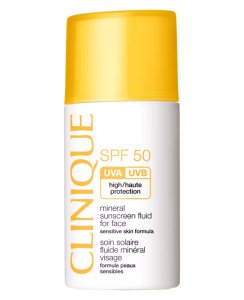
*Eliza may earn commission on sales from these product links
Does mineral sunscreen leave a white cast on the skin?
If zinc-based sunscreens are conjuring up images of cricketers with white stripes painted across their nose, then you’d be right. Sort of. The mineral sunscreens of the past were fairly heavy formulations and left behind a white cast. However, sunscreen scientists have been working hard to improve this, and today’s mineral sunscreens are lighter and much more consumer friendly – you can now wear lots of mineral sunscreens under makeup.

What are the benefits of using mineral sunscreen?
So, why would you choose mineral sunscreen? Well, they tend to be recommended by dermatologists because they are heavier than chemical sunscreens and actively prevent sun rays from being absorbed into your skin. They also contain fewer ingredients, so are often recommended if you have sensitive skin that’s easily irritated by chemicals.
Is mineral sunscreen environmentally friendly?
One of the major things that mineral sunscreen has going for it is that, unlike chemical sunscreen, there is less of a debate about it potentially harming marine ecosystems such as coral reefs or wildlife.
Although research is still ongoing as to whether there is or isn’t an effect from mineral or chemical sunscreen on our oceans, some brands, such as Holland and Barrett, have made the decision to ban chemical sunscreen altogether and only stock mineral formulas.
The pros and cons of mineral sunscreen:
Pros
– Blocks UVA and UVB rays
– Good for sensitive skin types
– Works instantly upon application
– Currently research suggests that it doesn’t harm marine and ocean life
Cons
– Can leave behind a white cast, particularly on darker skin tones
– Wears off fairly easily
– More likely to clog pores, so oily or acne-prone skin types might want to opt for chemical sunscreen instead
The best mineral sunscreens to try now:
Summer Fridays ShadeDrops Broad Spectrum SPF 30 Mineral Milk Sunscreen, £36
This reef-friendly formula makes it ideal for trips to the beach – plus, it’s enriched with nutrients to nourish skin while defending it from the sun. It goes on like a lightweight serum and quickly absorbs into the skin, leaving a natural finish that sits well under makeup.
Clinique Mineral Sunscreen Fluid for Face SPF50,
This 100% mineral formula is gentle enough to use on sensitive skin and around the eye area, too. The milky fluid is ultra lightweight and sinks into skin with ease, plus the Invisible Shield Technology promises to be just that: undetectable.
Dr Sam’s Flawless Daily Sunscreen SPF50, £31
Dermatologists recommend wearing as high a factor SPF as possible, because we tend to apply much less sunscreen than is actually effective. This means that when we apply factor 30, really it’s only giving us the benefit of around factor 15. Eek. So a generous application of this SPF 50 formula will make sure you’re protected to the max.
How should I choose between mineral and chemical sunscreen?
Firstly, get to know your skin type. If you have oily or acne-prone skin and tend to break out when your pores get clogged, then a chemical sunscreen might be better for you. It’s also probably a good idea for you to seek out oil-free and non-comedogenic sunscreens.
But if you have skin that doesn’t react kindly to strong chemicals, then mineral sunscreen is likely to be a safer bet for you, as the UV-filters in chemical sunscreen have been linked to sensitivity reactions, and there is the question of marine safety.
Secondly, consider your skin tone. Although mineral sunscreens are now available in lightweight formulas, some of them still frustratingly leave a noticeable white cast. For darker skin tones, dermatologist Dija Ayodele recommends Invisible Shield SPF30, £20, Glossier and Ultra Violette Supreme Screen SPF50, £34, Cult Beauty and UV Face and Scalp Mist SPF50, £20, Ultrasun as “none of them leave a white cast”.
Still can’t decide? Use both. My personal preference is to use mineral sunscreen when I’m on holiday, when there’s maximum sun exposure and I’m not wearing makeup. For everyday use, I opt for a chemical sunscreen. Or, try Kiehl’s Ultra Light Daily UV Defense Aqua Gel SPF 50 PA+, £33, Boots, which combines the ingredients of mineral and chemical sunscreens. The best of both worlds.
